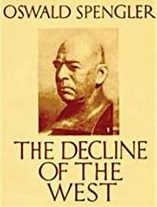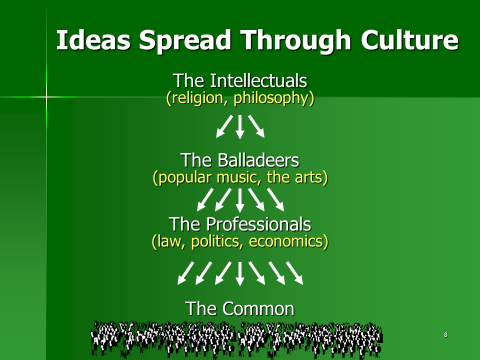How could Gerhard Kittel, one of the greatest Christian scholars of the 20th century, become the “Nazi Theologian”?
We have written a series of posts that deal with that question. Now, after reading Stephen R.C. Hicks’ book, Nietzsche and Nazis, I have some new insights that might help explain (but certainly not justify) this phenomenon.
In his fascinating book, Hicks, a Canadian-American philosopher and professor, reviews five “weak explanations” for the rise of Hitler and Nazism and then quickly dismisses each one. He points out that in the 1920s, Germany was the most educated country in the world, with the highest level of literacy and political engagement.
March 5, 1933 was the last free election until after WW II. Voter turnout was almost 89%, and Hitler’s National Socialist German Workers Party received 43.9% of the vote, by far the most of the nine contending parties.
Most Germans at this time were professing Christians divided into three major groups: “German Christians” rooted in the state rather than scripture, the “Confessing Church” rooted in the scripture as opposed to the state, and the Roman Catholic Church. The Nazi rise to power was largely supported at the polls by “Christians.”
Hicks writes: “Millions of voters in a democracy may be wrong, but it is unlikely that they were all deluded. A better explanation is that they knew what they were voting for and thought it the best course of action.”[1] [emphasis added]
As is most often the case, it is the intellectual community—university professors—who shape the culture that subsequently empowers political and social movements. This was the case in Germany.
German contemporaries of Kittel
 Hicks identifies the German intellectual leaders that created the climate for the Nazi rise to power. They included three Nobel Prize winners: Philipp Lenard and Johannes Stark received the award in physics in 1905 and 1919 respectively, and Gerhart Hauptmann in literature in 1912. Also notable, the world-famous historian Dr. Oswald Spengler and equally famous philosopher Martin Heidegger.
Hicks identifies the German intellectual leaders that created the climate for the Nazi rise to power. They included three Nobel Prize winners: Philipp Lenard and Johannes Stark received the award in physics in 1905 and 1919 respectively, and Gerhart Hauptmann in literature in 1912. Also notable, the world-famous historian Dr. Oswald Spengler and equally famous philosopher Martin Heidegger.
In his book The Third Reich (1923), Moeller van den Bruck lay the theoretical foundations for National Socialism. The last of Hicks’ seven leading German intellectuals was Dr. Carl Schmitt, whom Hicks describes as “probably the sharpest legal and political mind of his generation.”
Hicks summarizes the impact of these scholars:
These seven men are among the most intelligent and powerful minds in Germany in the decade before the Nazis came to power. They are leading figures in German intellectual culture, spanning the arts, science, history, law, politics, and philosophy. All of them, to one degree or another, supported National Socialism. Was Hitler smart enough to fool all of these highly intelligent men? Or is it more likely that they knew what they believed and supported National Socialism because they thought it was true?
Why Hicks did not include the premier German linguist and theologian Gerhard Kittel is a mystery to me. His Theological Dictionary of the New Testament (commonly known as “Kittel”) is so highly acclaimed and used by pastors and theologians around the world surely he should have been on the list. In fact, whether knowingly or otherwise, Kittel established the theological foundations for the Nazis.
Kittel and other intellectuals launched the Nazi philosophy
Hicks continues by showing that these intellectuals were the fount of the ideas that captured the imagination of the German people.
The primary cause of Nazism lies in philosophy. Not economics, not psychology, and not even politics.
National Socialism was first a philosophy of life believed and advocated by highly intelligent men and women. Professors, public intellectuals, Nobel Prize-winners—all powerful minds working at the cutting edges of their disciplines. It was they who shaped the intellectual culture of Germany in the 1920s and who convinced millions of Germans that National Socialism was the best hope for Germany’s future.
 As the graphic indicates, ideas spread from the intellectuals to the professional class and eventually to influence the common man. This is exactly what happened in the 1920s and 30s in Germany. Germans were looking for a noble cause worthy of their lives. The Nazi intellectuals articulated that cause. Hicks writes of their idealism and almost “heavenly” fervor.
As the graphic indicates, ideas spread from the intellectuals to the professional class and eventually to influence the common man. This is exactly what happened in the 1920s and 30s in Germany. Germans were looking for a noble cause worthy of their lives. The Nazi intellectuals articulated that cause. Hicks writes of their idealism and almost “heavenly” fervor.
I also want to suggest that the Nazi intellectuals and their followers thought of themselves as idealists and as crusaders for a noble cause. This may be even harder to accept. The National Socialists in the 1920s were passionate men and women who thought that the world was in a crisis and that a moral revolution was called for. They believed their ideas to be true, beautiful, noble, and the only hope for the world.
Intellectual leaders supported the rising Nazi tide
While the brown shirts and the prison guards may have been thugs, the intellectual leaders and thought shapers were idealists.
But soon their ranks were thinned. Many Jewish intellectuals were fired, some professors quit in protest, but many supported the rising Nazi tide their voices and writings had mobilized.
When the National Socialists took power, they prohibited all Jews from holding academic positions—this resulted in the firing of hundreds of tenured Jewish professors [forcing the Jewish intellectuals at the Frankfurt School to flee to the United States and take their Cultural Marxist ideology with them], including several Nobel Laureates. To their credit, many other professors resigned in protest or emigrated. But such professors were in the small minority.
A large majority of university professors remained on the job, either silently accepting the new regime or even actively supporting it. In 1933, for example, 960 professors, including prominent figures such as philosopher Martin Heidegger, made a public proclamation of their support for Adolf Hitler and the National Socialist regime.
The brilliant Kittel was one of these. He did not protest; he did not passively acquiesce. Perhaps in some demonic idealism, his communion with other public intellectuals led him to fully engaged with the leadership of the Third Reich to try to provide theological justification for this “noble” vision for future of Germany and all of humanity. In doing so he helped to seal the fate of 6,000,000 individual Jews for the sake of the Volkish German people.
May this perverse tale remind us to look carefully at our own blind spots so we do not unintentionally support evil in our own generation.
– Darrow Miller
[1] All quotations are from Nietzsche and the Nazis by Stephen R.C. Hicks







15 Comments
Peter Millward
February 25, 2019 - 10:13 amDarrow, ….I am just wondering – surely the influence of Social Darwinism has to be mentioned as a powerful influence? How did it effected the thinking of the intellectuals mentioned? – and how did it effect the Church and theologians like Kittel at the time?
admin
February 25, 2019 - 1:19 pmHi Peter
There is a multifaceted impact. 1) Social Darwinism as applied to racial purity and the eugenics movement. 2) Hyper-amoral nationalism. The simple way to say this is that German nationalism was more important for Christians than the cross of Christ. They were Germans first and Christians second. 3) The sacred/secular divide. They were Christians in their spiritual life and completely secular in the rest of their life.
Peter Millward
February 25, 2019 - 4:35 pmThis looks like a good topic for discussion. What Darrow is sharing from the book by Hicks is something new to me, which is why I am questioning…….even with intellectuals like those mentioned. Were they the movers and shakers of Nazi Germany? Or did they just get swept along, including their intellects on the hubris of Hitlers mesmeric speeches? Germans from all walks of life were falling into line……Hitler, somehow plugged into the national psyche of Germany…….and many were simply spellbound by him, and that must have included most of the intellectuals and theologians. Hitler was a very successful orator without a doubt and its difficult to see the rise of National Socialism taking place without this perhaps. “I know that men are won over less by the written than by the spoken word, that every great movement on this earth owes its growth to great orators and not to great writers.” —Adolf Hitler, “Mein Kampf,” 1925 https://www.businessinsider.com/why-hitler-was-such-a-successful-orator-2015-5
admin
February 26, 2019 - 6:04 amThanks Peter for your engagement. Here are some of my reflections:
Following WW1, Germany was one of the most “Christianized” countries in the world and the academy were perhaps the greatest in the world at that time. While about 80% of Germans were professed Christians, they suffered from SSD – the Sacred/Secular Divide. They were both Germans and Christians, but their being German trumped their being Christian. With the renewal of the spirit of German Nationalism, the Christians did not critique the growing movement, but joined it. They “preceded” Hitler. So when Hitler began to speak his message of German victimization at the hands of the victorious Allies and the Treaty of Versailles, the SSD church enthusiastically supported him.
This is an historic reminder to the church to renounce Evangelical Gnosticism – the SSD, and return to the comprehensive wholism of Biblical Theism. As we enter the 21st Century, the church has already bought into the moral relativism of Modernism and we are now rapidly engaging in the Post-Truth culture of Postmodernism. The church is being swept up with the mindset of victimization and intersectionality. We see this in the uncritical assessment of the “social justice” and transgender movements.
Bob Evans
February 26, 2019 - 8:13 amVery interesting post and dialogue, especially since I just finished reading a new book that explores this subject in depth – not just for Hitler but for all the 20th century godless regimes. The book is Unimanageable: What Our World Would be Like Without Christianity, Jeremiah J. Johnston, Bethany House 2017. While he doesn’t go into specific depth about theologians like Kittle, he does deeply explore the philosophical environment (including Social Darwinism) of Nietche et al that fostered such thinking. His main point is to show the parallels to the culture of late antiquity (1st century Rome for example) and other non-theistic cultures with these regimes and how these no-god movements are reversions to such cultures from the massive social and cultural change the rise of Christianity brought.
admin
February 26, 2019 - 2:32 pmBob, Thanks for joining the dialog.
Peter Millward
February 26, 2019 - 6:53 pmThankyou for your reflections, Going by the understanding you shared “Germany was one of the most “Christianized” …….. how many of the 80% professed Christians – actually were “Christians” in the Biblical sense? The rise of Hitler showed the true spiritual reality of the Church……and your right to draw parallels with today, we are seeing a lot of reasons why we should be very concerned with the 21st century church. The way I see it – Going back to Germany and what preceded Hitler…….There are a lot of factors involved……one of the main ones was Germany had a highly militaristic culture – especially Prussia which had prevailed and united Germany – and sadly that militaristic culture and also the world view that went with it carried a lot of weight politically – Hitler used that. Once National Socialism started gaining power – the intellectuals and theologian knew they would have to adjust or be left out. Its worth throwing into the debate the video below which discusses the issue of Social Darwinism and how it influenced those in power ” https://www.youtube.com/watch?v=9n900e80R30
admin
February 27, 2019 - 6:51 amPeter, thank you for linking the video. Very informative. Hope others will view it.
Peter Millward
February 27, 2019 - 6:28 pmYou are welcome……Thinking more about the dialogue we are having…..usually when totalitarian regimes rise to power Intellectuals and theologians tend to end up like Piggy in Lord of the Flies. Pol Pot had a regime which was particularly brutal…… It wasnt even a good idea wearing glasses.
Which is why I am wondering about the graphic – I wonder what the graphic would look like when totalitarian regimes take control? We had an awful lot of them in the last century……and down through history…we see various tyrannical systems and historical figures……which simply steam roller their way to power and influence. Which shows there is a dynamic at work which can move beyond the control of even the intellectuals and theologians….. The graphic shows how intellectuals and theologians function, but only where true freedom can this be a true reflection. Today we have a complex situation where freedom is being eroded more and more even in democratic nations. and the whole concept of the internet and social media has made these issues like sinking sand under the feet of many. Never in the history of the world has so much information been made available…..but we are perhaps seeing a very confused generations struggling to adapt to new technology……technology we dont even know where it is going….and if it gets into the wrong hands …..what kind of world will it be?
Scott Allen
February 27, 2019 - 8:08 amHi Peter,
On the subject of social Darwinism’s influence on the rise of Nazism, I just read this last night in a terrific article in World Mag. https://world.wng.org/2019/02/if_rocks_could_talk
It is an interview article with a German paleontologist named Günter Bechly. The interviewer asks: “What do you think of the link scholars have made between Darwinism, 19th-century social Darwinism, and the rise of 20th-century fascism?”
Bechly answers: “It is certainly not simple causation, but a certain mindset combined with a rejection of human dignity leads to atrocities. This is true in Nazism, in Soviet gulags, and now in North Korea. If humans originated from the animal realm by a purely unguided process, there is no real reason in nature to treat humans differently from stones. It’s just a different aggregate of atoms. But the connection is not simple: Darwin wouldn’t have been a supporter of Nazi Germany.”
I thought that was one of the best responses I’ve heard on this topic.
Scott Allen
Peter Millward
February 27, 2019 - 6:26 pmThinking more about the dialogue we are having…..usually when totalitarian regimes rise to power Intellectuals and theologians tend to end up like Piggy in Lord of the Flies. Pol Pot had a regime which was particularly brutal…… It wasnt even a good idea wearing glasses.
Which is why I am wondering about the graphic – I wonder what the graphic would look like when totalitarian regimes take control? We had an awful lot of them in the last century……and down through history…we see various tyrannical systems and historical figures……which simply steam roller their way to power and influence. Which shows there is a dynamic at work which can move beyond the control of even the intellectuals and theologians….. The graphic shows how intellectuals and theologians function, but only where true freedom can this be a true reflection. Today we have a complex situation where freedom is being eroded more and more even in democratic nations. and the whole concept of the internet and social media has made these issues like sinking sand under the feet of many. Never in the history of the world has so much information been made available…..but we are perhaps seeing a very confused generations struggling to adapt to new technology……technology we dont even know where it is going….and if it gets into the wrong hands …..what kind of world will it be?
Bob Evans
February 28, 2019 - 10:48 pmPeter – great comments and observations. As to your final question – … technology … gets into the wrong hands … What kind of world will it be? Dare I say we stand on the brink of a world I never imagined possible when I first read of it – a world of manufactured (and engineered for specific purposes) babies grown with out parents. A world of women as inferior play objects yet deemed free because they can have sex at will without consequence. A world ruled a handful of technocratic oligogues running multinational conglomerates, of pot for the masses on daily doses supplied by the government, of universal salary to get stoned and be endlessly entertained in. A world were a free thinker is ridiculed, hunted and criminalized. A Brave New World.
admin
March 1, 2019 - 7:22 amBob
Thanks for your comments. We are heading into this new world at warp speed. Thankfully some folks are beginning to wake up and beginning to speak out and push back.
Peter Millward
March 8, 2019 - 7:41 pmHello Bob! just catching up here with the blog posts! We do indeed stand on the brink of a new world….We are waiting for the next paradigme shift in technology to catch everyone off balance. I cannot forget watching a documentary years ago about Bletchley Park……The computers that were built specifically to crack the Nazi codes. If I remember correctly…..They said Churchill ordered them to all be destroyed……but the plans and the know how – how to build them got out and went to America. Somehow Churchill had a canny knack for seeing implications….and didnt like what he saw with what computers could do…….70 odd years later and we are living in those implications. What if Churchills orders had been carried out to the letter? What kind of world would we be living in …….would the computer age have been delayed for another 30 – 40 yrs? If Churchill could revisit today…what would he have to say?
The phrase from Admin – “We are heading into this new world at warp” speed. Its the ones who can correctly predict tomorrow, who will have the edge on everyone and everything. The people of God need to be ahead of everyone else….like Joseph in Egypt.
Peter Millward
February 27, 2019 - 5:37 pmHello Scott,
Thank you for sharing the interview article of Günter Bechly . It’s very good good what Günter Bechly shares, he is a man of courage to step out and challenge the status quo of the establishment.